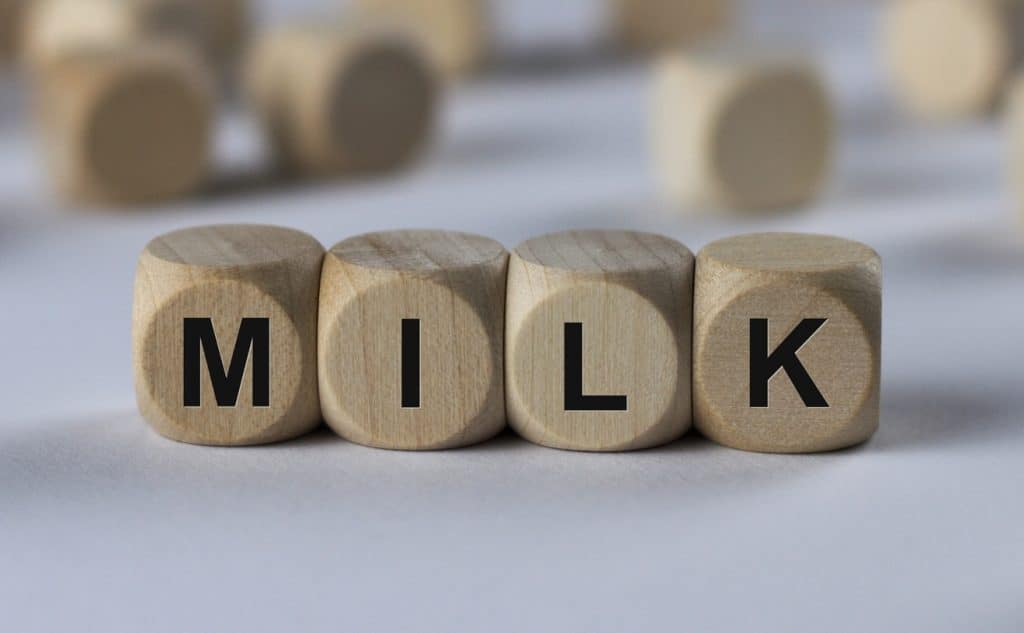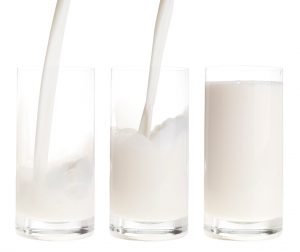Cow’s milk vs. the alternatives: Which is the better choice?


Before I start, let me begin the article with the acknowledgment and confession: I drink milk. I like milk, and I prefer milk. I am going to give you a no-nonsense opinion on milk and its alternatives. This article is not funded by or supported by either the dairy industry or manufacturers of the alternatives. I have no vested interest in converting your form your tried and true morning beverage. My only goal is to provide you with the facts and let you decide for yourself.
The fact is that milk is a staple food in many of our breakfast plans. Milk, in terms of nutrition, is an excellent source for protein and vital vitamins and minerals. The best part is that milk has a low glycemic index that makes it more filling if you are dieting. If you can tolerate it, milk should be included as part of a healthy diet. Milk is a very versatile addition to any breakfast. It can be consumed as a beverage, poured on cereal and added to tea or coffee. It is the main component of smoothies both as milk and in its fermented form of yogurt.
Despite the widespread use and the fact that milk is an excellent source for vitamins and minerals, many people have decided to forgo milk for personal or medical reasons. Milk alternatives are popular these days, as new alternatives to cow’s milk seem to pop up with increasing frequency on supermarket shelves. This availability is good news if you’re looking to avoid cow’s milk, there are plenty of nondairy alternatives available. The question is if any of them are good enough to replace milk?
List of milk alternatives:
- Lactose-free or reduced lactose cow’s milk: This alternative will not work if you are milk allergic, but if you are intolerant, it might. Lactose, the carbohydrate in milk, is what causes milk intolerance. Intolerant people have less lactase (enzyme) to digest milk, so it ends up in the bowels causing gas and diarrhea, you may be able to take smaller amounts so lactose-free or reduce lactase might be just what you need. Lactose-free milk has the same nutritional value as standard milk. One option is Fairlife milk which has superior nutrition to milk or any of the alternatives.
- Soy milk: Soy milk is a nutritious replacement for dairy for those that cannot tolerate dairy. Soy milk is nutritionally similar to cow’s milk because it is a rich source of protein and carbohydrates, but it must be fortified with calcium, vitamins A and D, and riboflavin to be more complete like milk. Soy milk has plenty of available options. Soy is a popular alternative to dairy milk. Soy milk is a bean extract created by mechanically crushing soybeans. You can find it in the grocery store sold in sweetened, unsweetened and flavored varieties. My store has chocolate, strawberry, and vanilla. During the holidays, there is even soy eggnog.
- Hemp Milk: Hemp milk is an excellent source of nutrition, but if you have a federal or military job, it is likely off-limits. No, you won’t get high on hemp milk, but there are some fears it might cause a positive drug test. It is made from crushed, hulled hemp seeds, water, and sweeteners. Hemp milk is a good alternative for those allergic to soy, nuts, and gluten.
- Almond milk: Almond milk is sweet with a creamy texture similar to dairy milk. It is made from ground almonds, water, and a sweetener. Almond milk is naturally lactose-free and low in saturated fat. Unlike hemp milk, it is more moderate in Calcium content, but it still requires fortification. Almond milk is a diet-friendly because it’s low in calories as long as you avoid the sweetened versions. It will work in baked cooks and some recipes.
- Oat milk: Oat milk is a popular dairy-free, vegan-friendly milk substitute. It is made by soaking and blending steel-cut or rolled oats with water and then straining them through cheesecloth to separate the milk from the oats. Naturally, oat milk isn’t as nutritious as whole oats, but oat milk is still a good source of fiber, vitamin E, folate and riboflavin.
- Rice milk: Rice milk is lactose-free and low in saturated fat. But unlike cow’s milk and like oat milk, rice milk contains very little protein and calcium. This milk is also thin and watery, so it’s not a good cow’s milk substitute for cooking or baking.
- Coconut Milk: Coconut milk is a very close alternative to cow’s milk. Personally, I found the taste and texture to be the closest to cows milk. Coconut milk works well in recipes that require a creamy, rich consistency and it may be the best replacement for milk. It is fantastic in coffee as a perfect replacement for It provides a rich half and half and creamer.
- Flax Milk: Flaxseed Milk contains no cholesterol or lactose, making it a heart-healthy alternative. Flaxseed milk is also low in calories and sugar compared to other plant-based
milks on the market. It is a little thin and sweet for my taste. - Macadamia Milk: Macadamia milk is made mostly of water. It’s a newcomer to the milk alternative market. Most brands are made in Australia using Australian macadamias. I love the vanilla Macadamia milk in my coffee. It has a richer, smoother, and creamier flavor similar to coconut milk.
- Pea Milk: Along with Macadamia milk, pea milk is one of the newest dairy-free alternatives to arrive at your local market. It is great in smoothies and it has a taste and texture very similar to cow’s milk. It packs in more calcium and vitamin D from fortification. Made from yellow split peas, pea milk has the same protein as cow’s milk and it is also available in an unsweetened version with no added sugar.
- Cashew Milk: Cashew milk is made from ground cashews and water. It is rich and creamy. It has a sweet, but subtle nutty flavor. I find that is is good in desserts especially puddings and ice cream.

The bottom line: None of the alternatives ideally replaces milk. The nutritional qualities of other milks vary greatly, so it is important to take note of these differences when making a selection and pick one that works for you. I found that flavor, taste, and texture are all important considerations for me to continue using them. I use Fairlife skim, coconut, and macadamia milks, primarily. If you are trying to lose weight, pick wisely. I suggest you stick with unsweetened varieties and avoid empty sugar calories.










Thanks for this!!